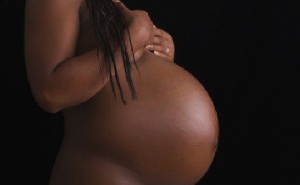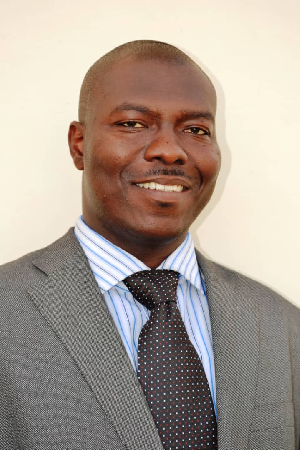- Home - News
- TWI News | TV
- Polls
- Year In Review
- News Archive
- Crime & Punishment
- Politics
- Regional
- Editorial
- Health
- Ghanaians Abroad
- Tabloid
- Africa
- Religion
- Election 2020
- Coronavirus
- News Videos | TV
- Photo Archives
- News Headlines
- Press Release
General News of Friday, 10 May 2013
Source: GNA
750,000 teenagers become pregnant in Ghana annually
An estimated number of 750,000 teenagers from 15 to 19 years become pregnant in Ghana annually, and last year, about 14,000 teenagers became pregnant in the Central Region.
A total of 762 teenagers in the Gomoa West District in the region became pregnant last year, and 17 of them were aged between ten and 14years.
Mr. Bright Amissah-Nyarko, Central Regional Branch Chairman of the Ghana Coalition of NGOs on Health (GCNH), made these known on Thursday in Cape Coast, at its fifth Regional Civil Society Organizations’ (CSO) health forum.
The event was on the theme: “Overcoming the Gaps and Challenges in Attaining Reproductive Health Millennium Development Goals (MDG) Indicators; the Collective Role of CSOs and stakeholders’’.
Mr. Amissah-Nyarko said the high cases of teenage pregnancy was partly due to irresponsible parenthood, broken homes, child neglect and peer pressure, and gave the assurance that the Coalition will ‘not rest’ until there was a drastic change in the situation.
Concerning health in the region, he said malaria that continued to be the highest reported medical condition at all health facilities posed a major threat, particularly to pregnant women and children below five years.
Mr. Amissah-Nyarko said it was difficult to achieve the MDGs four and five that seek to reduce child mortality and improve maternal health by 2015, in the region.
He mentioned misconception about the use of family planning methods, inadequate number of personnel with requisite skills to deliver at health facilities and limited care for emergency obstetric and newborn babies.
Mr. Amissah-Nyarko said the Coalition will collaboration with stakeholders and organize health educational programmes for people, particularly school children, in the reproductive stage.
He said the Coalition would also intensify education on sexual reproductive health and rights in schools, homes and communities, as well as monitor the growth of teenage mothers, offer them psychosocial counseling and make sure that those who dropped out of school returned to the classroom.
Mr. Amissah-Nyarko called on development partners, the Government, media and stakeholders to support the Coalition in achieving its objectives.
Assistant Superintendent of Police (ASP) Hilda Akarimanga, Deputy Regional Coordinator of the Domestic Violence and Victims Support Unit (DOVVSU), condemned men who engage in incest, particularly fathers, who impregnate their daughters, and cautioned mothers who cover up the ‘disgraceful act’.
She advised victims of these acts and their mothers, or relatives, to report to DOVVSU for the law to take its course.
ASP Akarimanga asked parents to give their children the right training so that they do not become reliability to society.
The GCNH is a non-profit civil society organization, serving as an umbrella and coordinating body of activities of all registered NGOs working in the area of health.











